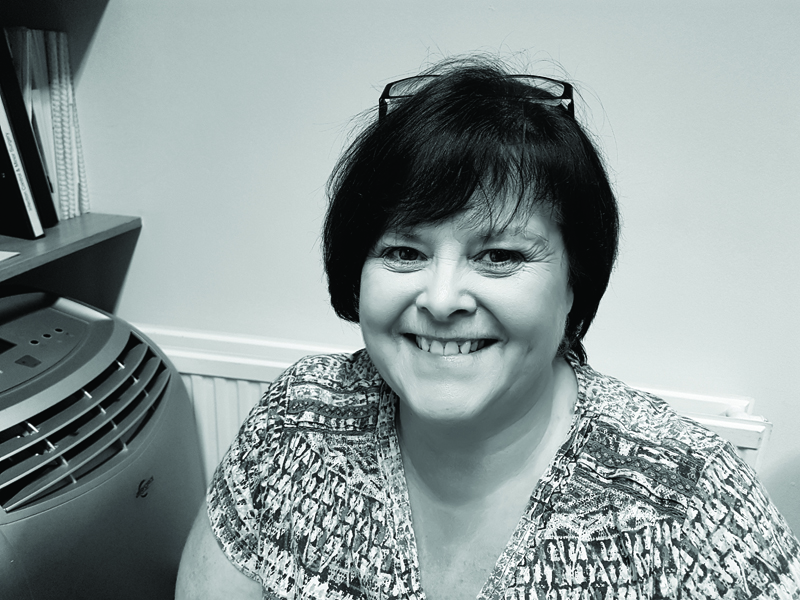Debate: Has QOF been good for general practice?

Practice nurses Nicky Wallace and Louise Brady debate whether the quality and outcomes framework (QOF) has been good for general practice
YES
|
|---|
|
The quality and outcomes framework (QOF) was imposed in 2004 and had a two-fold objective. First, it was to measure productivity for GP practices to calculate remuneration. Second, it was to set a minimum standard of care for patients with long-term conditions. It was certainly true that, as more patients with long-term conditions were sent from secondary to primary care, some were not getting a basic regular review or organised monitoring of their condition. General practice care for long-term conditions was very variable in quality and the paymaster had no way of benchmarking that care. Some primary care teams saw QOF as a threat rather than an opportunity to develop care, and I think this was short sighted. It appeared to be a blunt tick-box exercise. Certainly it was treated as such by some, who only viewed it as a financial instrument. I expect in some places it is still used that way without any individualised care being applied. The application of any performance indicator is fraught with difficulty, but at least QOF was a start to enable poorly performing practices to develop and know what minimum standard should be expected. Better practices also moved on by achieving the minimum standard, and were able to build in more individualised care plans and targets as they became more experienced and could apply the data in a useful way to improve service delivery and care. Related Article: MPs vote to legalise assisted dying in England and Wales Practice nurses, in particular, developed many more specialist skills in managing long-term conditions. More of that workload is now supported by the practice nurse effort, directed by QOF, and has freed up GP time for the more complex patients. The professional confidence and competence of practice nurses has also enabled more patients to access good care closer to home in their own GP practices. We now have a need in GP practices to educate the next generation of practice nurses to succeed the nurses who have developed QOF. At my practice, we recently supported a nurse through her specialist qualification and QOF standards were an important part, guiding her to achieve her competencies. QOF is a good outline of the processes needed to achieve good care and monitoring. The collection of thorough data not only supports the patient and helps to monitor progress, it also ensures the practice can faithfully and honestly claim appropriate remuneration for that productivity. QOF may not reflect some of the other approaches in primary care, such as social prescribing, but it goes some way to reflect practice productivity and proactive care approaches. Within my practice we exploit the QOF data collection to develop individualised care planning, which encourages patients to focus on aspects of their health and care that are their priority, having been given the best information. I can understand the temptation for practices to only do the mechanistic tick-box exercise to ensure payments are maximised, but this is unsatisfactory for patient care and unsatisfying for health professionals. Lateral thinking on QOF needs to be applied to achieve quality, not just quantity. Audit processes have become manageable and easy to interrogate because of the expertise we now all apply routinely in the use of Read codes through our IT systems. I believe that QOF recording has helped us greatly to focus on the bigger picture in terms of practice population. QOF does allow for exception reporting and this is sometimes underused by inexperienced staff who are chasing patient goals that are not achievable because of a number of factors such as frailty, reaching maximum tolerated medication or informed dissent. The data available in the QOF recording are an essential part of the information that can be as useful to patients as it is to clinicians in deciding their health priorities. It is possible to make QOF work for healthcare teams and also for patients, but it does need multidisciplinary effort to get the best out of it for patients and the bottom line. Nicky Wallace is an advanced nurse practitioner at Tarporley Health Centre, Cheshire. She is also a qualified health visitor with 30 years’ experience in primary care |
|
NOLouise Brady: QOF is making targets more important than the individual |
|---|
|
As a primary care nurse, my own health begins with a good job and a fair wage, where I derive a sense of personal satisfaction from my work, and the relationships I develop with others. This means moving beyond tick-box competency to an approach that acknowledges the breadth, richness and depth of nursing care. The current GP contract, particularly QOF, is no longer fit for purpose. In fact, I would say the QOF has become a damaging factor in the pursuit of person-centred care. It is predicated on achieving financial microincentives for general practice, and nurses fulfil the majority of the role in their long-term condition clinics. With a rapidly depleting general practice workforce, coupled with financial constraints, time constraints and austerity measures, nurses and GPs have had enough of ticking the proverbial box. There is very little tangible evidence over the last 10 years to suggest that this GP contract has made a significant difference at the individual or population level to the lives of those we care for. The QOF optimists believe that it has had a role in the prevention agenda. The pessimists are so burnt out that to even consider a change in contract or working practice would be too much to bear. Those who sit on the fence say ‘don’t throw the baby out with the bathwater’ — let’s keep some of the QOF and combine that with new incentives and different ways to practise. All are deeply concerned that the loss of the QOF means a loss of precious resource and monies to maintain an already overstretched and worn-out primary care workforce. So we carry on maintaining the unsuccessful status quo for fear of the future, the ‘unknown’ and new alternatives. Related Article: Assisted dying bill: Two-thirds of GPNs ‘supportive’ but less sure on nurse involvement As I sit in my surgery I think about Mabel. I have a whole 15 minutes with Mabel, on a busy Friday afternoon. In general practice, patients can be caught in a clash between goal-orientated and problem-orientated perspectives. Mabel is in her 70s. She has a chaotic lifestyle with poorly controlled blood pressure, diabetes and angina. She is socially isolated with a history of anxiety and depression, her osteoarthritis causes pain and she articulates what matters most to her: ‘On Tuesdays and Thursdays I want to visit my friends and play cards with them. On Saturday I want to go to the supermarket with my daughter. Foremost, I just want peace. I don’t want to continually change treatment any more.’ The Mabel Test The QOF would have general practice nurses focusing solely on solving clinical problems by titrating multiple medications to ensure Mabel is normotensive. In my 15-minute appointment, I would need to have a conversation with Mabel about titrating her insulin; I would need to go through a comprehensive dietary review; undertake a diabetes foot check, including use of Doppler, as her feet are swollen. I would need to ask Mabel about her retinopathy checks, increase her blood pressure medication and agree a plan of care. I would need to ask about her angina, and ascertain if this is stable. This is impossible to do well in a time-pressured environment. General practice nurses, like GPs, are already under enormous pressure – and then we expect our nurses to ensure they have ticked all the QOF boxes. Mabel eventually spends 35 minutes with me, as she needed my time, care and reassurance. If we as general practice staff focus our efforts solely on reducing HbA1c levels as defined by national guidelines and QOF targets, we will miss the point. Yes, this is very important, but clinical targets are becoming more important to the system than the individual. Effectively supporting self-management depends on us as practitioners taking a collaborative person-centred approach, which requires a cultural shift from the model of ‘fixer’ to ‘enabler’. Related Article: Government accused of ‘avoiding’ practice nurse pay disparities This will not be achieved by maintaining the status quo, the QOF contract, and time-pressured consultations. Louise Brady is a practice nurse, and clinical and strategic development lead for practice nursing at NHS Manchester clinical commissioning group’s North, Central & South region |

See how our symptom tool can help you make better sense of patient presentations
Click here to search a symptom


Practice nurses Nicky Wallace and Louise Brady debate what effect the quality and outcomes framework (QOF) has had on general practice.





